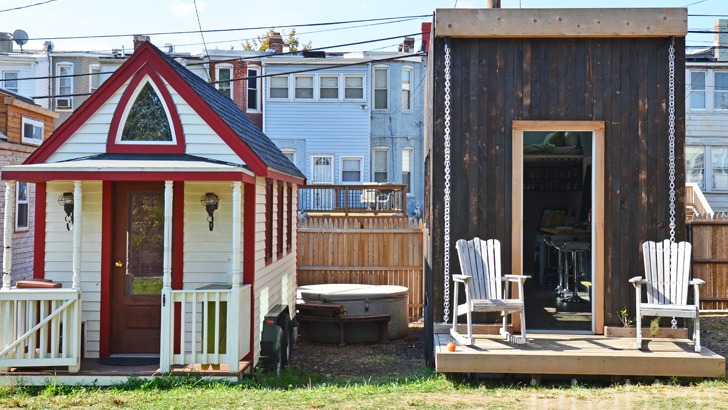Send your question to Umbra!
Q. Environmentally speaking, what are the pros and cons of building a tiny house (approximately 300 square feet) vs. living in an older home that is already here (approximately 1,000 square feet)? Is it better for me to move out of my old home into a tiny one to lead a more sustainable lifestyle?
Colleen
Stoughton, Wis.
A. Dearest Colleen,
When I was 7, I was sent home early from a slumber party for attempting to convert a friend’s Barbie mansion into an energy-efficient, high-density apartment complex. (Do Barbie and Ken really need all that space for just two? Come on!) So I understand your urge to shrink your environmental footprint by way of shrinking square footage. And with tiny homes getting hipper and more architecturally ingenious by the minute, there’s perhaps no better time to think small. But as you suspect, Colleen, there’s more than just sheer size at play here.
A tiny house seems like the slam-dunk at first glance, for obvious reasons. The smaller the home, the fewer resources used to construct it, and the less energy required to heat and cool it (significant, as H&C account for nearly half of all a home’s energy use). Tiny homes can also only fit a tiny amount of stuff, further reducing our use of resources in the form of furniture and giant appliances. And that’s not even considering that mini-homes cost way less than your typical family home.
Here’s the rub: There’s always an environmental cost to building something new. In fact, an analysis from the Preservation Green Lab (part of the National Trust for Historic Preservation) reported that in almost every case, “reusing” an old building through green retrofitting has a smaller impact than building one from scratch.
That’s largely because of what those in the biz call the embodied energy contained within an existing house: all the power and carbon emissions that were required to extract raw materials, create construction supplies, transport the supplies, and put them together to form the dwelling. If you knock down the old girl, you lose all that embodied energy — not to mention pile more energy use on top of that in demolition and the hauling away of rubble.
Two caveats to note: One, the Preservation Green Lab study analyzed structures of similar sizes, which is not what we’re dealing with here. Replacing an older building with a much smaller, more energy-efficient one would undoubtedly change the calculus. And two, this assumes that you’re destroying your current home to build a tiny home in its place, not simply selling your home and moving on.
I couldn’t find any similar analyses that crunched the numbers for this kind of downsizing. But common sense tells us this, Colleen: If tiny is what you crave, it would be ecologically better to move into an existing studio apartment than to build a new, customized tiny house. This may not be what you had in mind.
If it’s any consolation, by American standards, you already sort of live in a tiny house: The median U.S. home has ballooned to 2,306 square feet. And there are some steps you can take to live even more sustainably in your current digs. The Department of Energy suggests starting with a home energy audit to identify where you can most improve your footprint, be that sealing up air leaks or reinforcing insulation. And projects get bigger and more ambitious from there. Rain barrels, composting toilets, or solar panels, anyone?
And if you just can’t resist the allure of a tiny house? You can reduce your impact by using salvaged, recycled, rapidly renewable, and/or local materials; stocking the place with Energy Star and WaterSense appliances; and avoiding toxins and VOCs as much as possible when choosing things like paint, cabinets, and siding. Failing that, you can always invite a few more people to live in your current abode. It’s amazing how much smaller a house can feel when you have an extra body or two sharing the bathroom.
Minusculely,
Umbra



